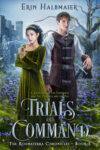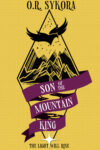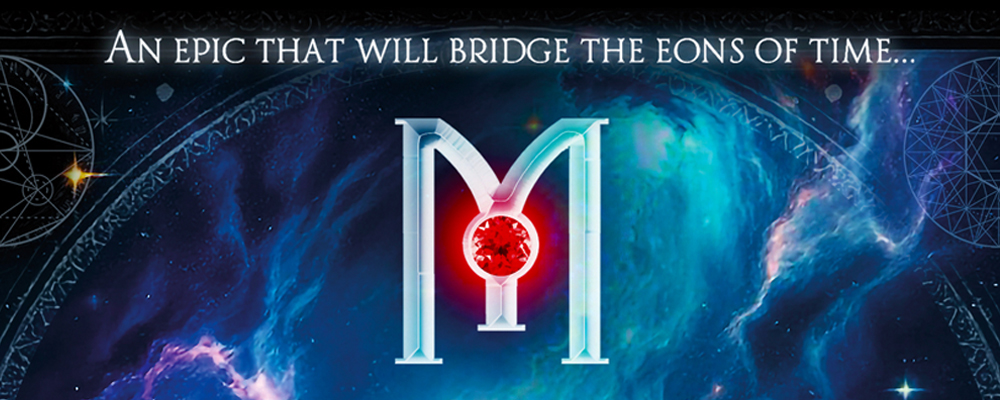Confessions Of A Spec-Fic Convert
(Or: Three simple ways to convert your non-geek friends.)
We all know The Look.
Classic symptoms include a glazed stare, a confused expression, rapid eye movement to seek out available escape routes and, in severe cases, a desperate attempt to change the subject of conversation to the weather.
I’m talking, of course, about that unfortunate moment when you try to explain your favorite speculative fiction novel, movie or television show to a non-geek friend. A madman alien travels through space and time abducting beautiful young women in his flying blue police box. It’s basically a Western, except they live in a spaceship—and curse in Mandarin.
Cue The Look.
Now, I freely admit it. I’ve been guilty of The Look on more than one occasion. I was that girl who thought geeks were “really weird” and couldn’t fathom their fascination with aliens and robots and basically anything to do with stars and science. I didn’t do slimy or gross. Or tentacles. Or mad scientists creating zombies, or—well, you get my drift.
And while I still have an aversion to gooey green aliens jumping out at me around dark corners, thanks to my best friend’s strategic injections of spec-fiction in various forms I’ve come to love many stories and characters that fall into the speculative genre. Whovian. Brown Coat. Atlantian. You name it, I probably claim it.
Yet when I was growing up, with the notable exceptions of Star Wars and Lord of the Rings, you would have been hard-pressed to interest me in anything other than historical fiction and romance novels. How did this magical transformation take place?
Very carefully.
So, listen up. With a little bit of luck and a whole lot of strategy, you too can begin converting even the most resistant reader or viewer into a lover of worlds unknown. And, just because I’m feeling that nice, I’m going to give you three simple steps.
Step 1: Hook them on the characters.
 I can’t emphasize this enough. They don’t care whether an intergalactic bridge is theoretically possible. They want to find their new best friend and go on adventures with them. So don’t tell them it’s about an alien with a time-travel machine. Tell them a brilliant but lonely young man with a quirky sense of humor runs around with his friends saving the world.
I can’t emphasize this enough. They don’t care whether an intergalactic bridge is theoretically possible. They want to find their new best friend and go on adventures with them. So don’t tell them it’s about an alien with a time-travel machine. Tell them a brilliant but lonely young man with a quirky sense of humor runs around with his friends saving the world.
See how that works? Moving swiftly onward.
Step 2: Hook them on the story-telling.
They’ve fallen in love with the hero/heroine. So far, so good. Now begin to show our reluctant closet geek the bigger picture. Point out important scenes or plot points. Patiently answer even the most obvious questions—without rolling your eyes. One of the beauties of spec-fiction is complicated, philosophical storylines that deal with deep moral or spiritual dilemmas. But if you’re new to the genre, it can be a bit like drinking from a fire hose.
Keep an eye out for The Look and stand by to intervene if necessary with a dose of reality. That way you’ll be watching when the light bulb comes on. Now you’re getting it…
Step 3: Don’t get distracted. Focus on what matters.
 Let me translate this into geek speak. No matter how much you want to explain exactly how time is less like a line and more like a big crazy ball of wibbly-wobbly-timey-wimey stuff, you must giggle maniacally to yourself in your armchair and refrain from expounding on your favorite subject—unless, of course, they ask. Even then, proceed with caution and watch for early symptoms of The Look. Don’t correct them on technicalities. Just smile and redirect back to that mind-blowing plot twist or a particularly witty one-liner from your hero/heroine.
Let me translate this into geek speak. No matter how much you want to explain exactly how time is less like a line and more like a big crazy ball of wibbly-wobbly-timey-wimey stuff, you must giggle maniacally to yourself in your armchair and refrain from expounding on your favorite subject—unless, of course, they ask. Even then, proceed with caution and watch for early symptoms of The Look. Don’t correct them on technicalities. Just smile and redirect back to that mind-blowing plot twist or a particularly witty one-liner from your hero/heroine.

Katie Morford is an author and editor at Crosshair Press.
A final word of warning—this formula only works if the subject is unaware of their conversion process. Once the subject realizes your intentions, they may become more resistant on sheer principle. Therefore, the conversion process requires a degree of subtlety and well-planned strategy
However, in my experience converted geeks become the staunchest fans—and in the speculative realms, that’s saying something! So, best of luck to you in your endeavors. We will try to aid you in this worthwhile quest by providing high-quality fiction with engaging characters and intriguing story-telling. You can do the rest.
After all, as my Downton-Abbey-lover-turned-Whovian friend once said: “You’ve got to fight the aliens sometime.”



























The problem is that it’s REALLY HARD to hold back the squeeing and the eye-rolling.
Great article, Katie. Seriously, I’ve been thinking that Christian speculative fiction needs to reach readers. We’ve made an effort to do that here at Spec Faith, with some small degree of success, but certainly one way to reach readers is to convert them. Love it! 😀
Becky
This is a great article! Great suggestions too. I find an important point can be introducing your friend on the right episode or film of a fandom. My first episode of Doctor Who was “Blink,” and now I start my friends on it. If they’ve accidentally seen a really confusing/horrifying/ridiculous one, either randomly by themselves or with you, it’s that much harder.
This is hard for me, because I feel a compulsive need to watch a series in order, even if it’s a relatively episodic show.
I didn’t need to be converted to speculative fiction, but I did need to be converted to Doctor Who. And honestly, I’m still not really feeling it, now that I’m in Season 3. There are some brilliant high concept moments, but I pretty much hate all the characters. I also haven’t quite figured out what to make of the show’s distinctive brand of very deliberate, self-aware, over-the-top camp. The camp is the lesser problem, but I wonder if the camp and the characterization are related. Nothing seems dignified to me.
I miss Star Trek, with its dignified officers and its serious take on its own campy setting.
Hang in there. If you don’t exactly like season three, there’s a change of tone in four, and something like a genre sift in season five, when the fairy tale theme begins.
It helps if your interests are more mainstream/geek than geek/geek. It’s easier to get someone hooked on video gaming if you show them Assassin’s Creed or Call of Duty than Etrian Odyssey or Dwarf Fortress. Usually there are “gateway drugs” to the bigger fandoms, but smaller ones tend to be harder to introduce.
The Christian spec fic fandom has it rough, though.
Thanks for all your lovely comments! It was easier to start “converting” me using Marvel’s superhero movies (still set in “real life”) and character-centric shows like Firefly. I’m all about the characters!
I had to be slowly introduced to Dr. Who…I started with the Matt Smith (eleventh) doctor, though, and the story-telling and character development is at such a high level by that point. I loved David Tennant too, but my first doctor will always be my favorite! 🙂